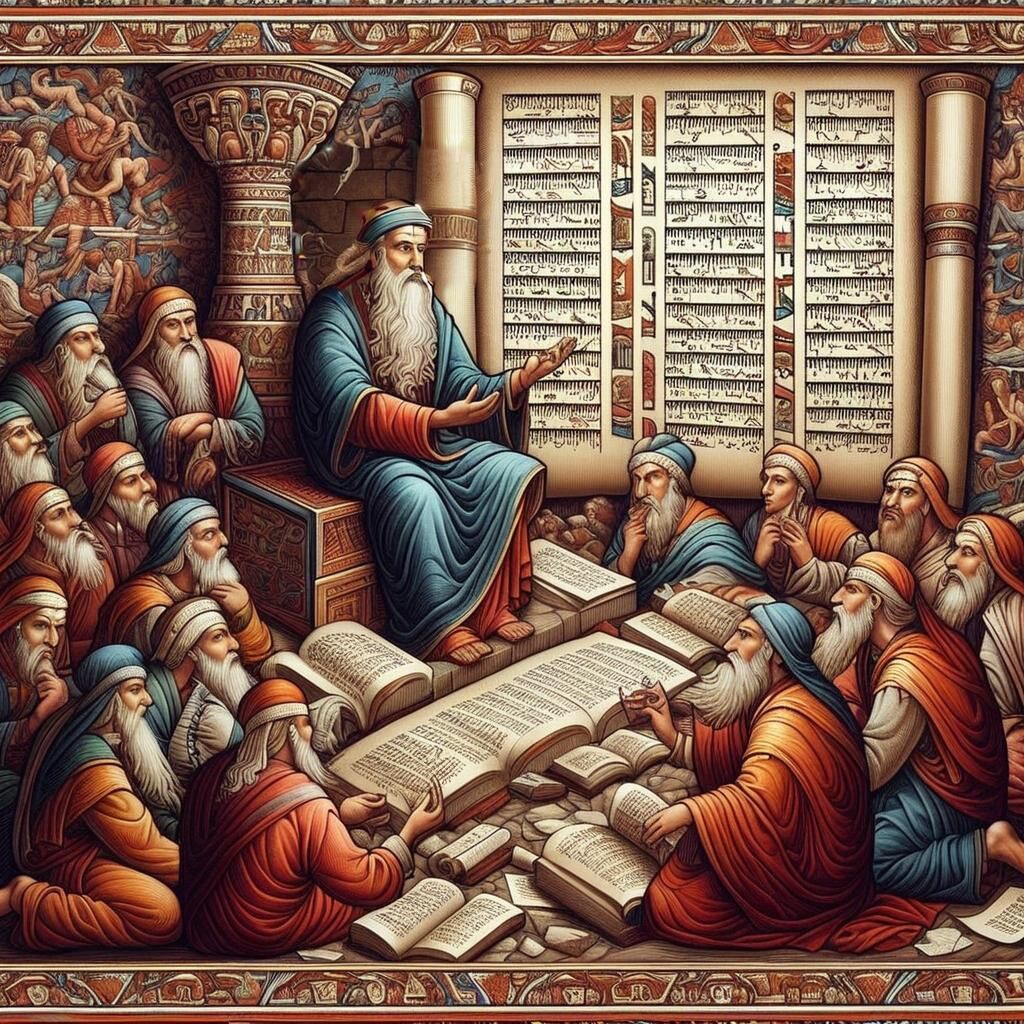Greetings, saints of the Most High! Welcome to another installment of the Messianic Torah Observer. Today, we delve into the intriguing topic of our Melchizedekian Priestly Pedigree, focusing on Jasher’s hidden chronicles.
In Part 3, we explored the theological implications of the Avram-Melchizedek encounter, discussing the dual offices of priesthood and kingship, the blessing conferred upon Avram, the significance of tithing, and the mysterious nature of Melchizedek. We also examined various religious perspectives on Melchizedek, including those from Catholicism, Islam, and Messianic Judaism.
Jewish legend and tradition often identify Shem, Noah’s righteous son, as Avram’s Melchizedek. However, there are several issues with this theory, including the lack of canonical biblical evidence and the improbability of Shem’s lifespan overlapping with Avram’s. Despite these concerns, the book of Jasher perpetuates this connection, presenting a narrative where Shem is indeed Avram’s Melchizedek.
Jasher’s account embellishes the biblical story, referring to Melchizedek as Adonizedek and describing a community meeting with Avram, bearing bread and wine. Interestingly, Jasher omits Melchizedek’s blessing of Yehovah, a curious detail given some ancient rabbinic opinions.
The narrative continues with Shem passing his prophecy school to Eber, his great-grandson, while the Melchizedekian priesthood is conferred upon Avram. This lineage, according to Jasher, includes notable figures like Adam, Enoch, and Noah, culminating in Avram.
However, the Jasher narrative raises questions about the authenticity and accuracy of these accounts. The Melchizedekian priesthood, as described in the Torah, operates outside biological heritage lines and temple sacrificial systems, foreshadowing the Spirit and Truth worship Yeshua spoke of.
Despite the conflicts between Jasher’s and the Torah’s accounts, we can glean significant insights into our Melchizedekian priestly pedigree. Concepts of righteousness, priestly conduct, obedience, and steadfast commitment to the faith form the foundation of our priestly calling. As students of Yahoshua’s Great School of Prophecy, we are in a season of training and preparation for our future roles in the Kingdom of Yehovah.
In conclusion, while I have my reservations about Jasher’s account, it offers valuable lessons about the godly elements that make up our Melchizedekian priestly pedigree. As we continue this series, we will explore these elements further, preparing us to serve as Melchizedekian kings and priests in the coming Kingdom of Yah.
May you be most blessed, fellow saints in training. Let us embrace our calling and prepare for the roles we are destined to fulfill.
Lashon Hara-The Sin You Never Knew You Were Committing-Torah Reading Numbers 12:1-15
Verse-by-Verse Discussion Miriam and Aharon Engage in Subversive Conversation Verse 1—Two of Moshe's family members, Miriam and Aharon, engaged in some subversive conversation against Moshe. Moshe apparently married an Ethiopian woman which seemed to outrage the...
Finding Contentment in our Faith–Torah Reading-Numbers 11:1-35
Finding Contentment in our Faith--Torah Reading--Numbers 11:1-35 Verse 1--The peoples' complaining or murmuring (complaining about their hardships openly in Taberah or The Place of Burning) displeased Yah which led to His wrath coming down upon the people...
What Did Paul Mean by Being Under the Law–Part 1
Goal of this Post “For Yah shows no partiality (that is, Yah shows no favoritism). For all who have sinned without the law will also perish without the law, and all who have sinned under the law will be judged by the law. For it is not the hearers of the law who are...
Paul and the LGBTQ Community–A Messianic Perspective
The Indictment Against Homosexuality In our ongoing quest to untangle and clarify some of the more difficult and challenging Pauline writings, (of late making our way through the Book of Romans), I want to next tackle Romans 1:26-27. Now, most of us should be...
Feast of Tabernacles and the Kingdom of God in You
The Feast of Tabernacles and the Kingdom of God (of Yah) in You My goal in delivering this discussion to you here today is to communicate to you another way of looking at and understanding the Kingdom of Yah. Another perspective. Another angle. Another Truth....
Yom Kippur (Day of Atonement)–A Messianic Torah Observer Perspective
Introducing Yom HaKippurim (aka, Yom Kippur or the Day of Atonement) Instead of trying to figure out what the Day of Atonement/Yom Kippur/Yom HaKippurim is about through hearsay, public discourse or opinion, what do you say we delve into the riches of Torah to get...
Yom Teruah’s Greatest Truths and Mysteries (Revealed)
Yom Teruah's Greatest Truths and Mysteries (Revealed) Today I want to expand our understanding of Yom Teruah (aka The Day of the Blowing of Trumpets or simply the Day of Trumpets) from the day being just another one of the 7-annual Feasts of YHVH; just that...
Polygamy and the Bible–A Messianic Perspective
My Interest Piqued In my studies of this past week’s Torah Reading, I was drawn to Deuteronomy 21:15-17. Many modern English bibles generally entitle this passage something akin to “The Right of the Firstborn.” That being said, this short passage really is about the...
Picking Up and Moving Forward With TMTO
Update on TMTO (Special post without any fanfare and promotion)--Where we are today and where we'll be going. Discontinuing Live-Stream and Why. The failure of the Livestream. Non-committal group of individuals. Newsletter failures. Loss of focus on the original...
Torah Reading 48–Shofetim–Judges–Reading Outline
This week's Torah Reading is contained within Deuteronomy 16:1--21:9 and is entitled Shofetim. In English, Shofetim means Judges. If one were summarize the content of this reading I guess it could be described as a discussion of Yah's established civil...

